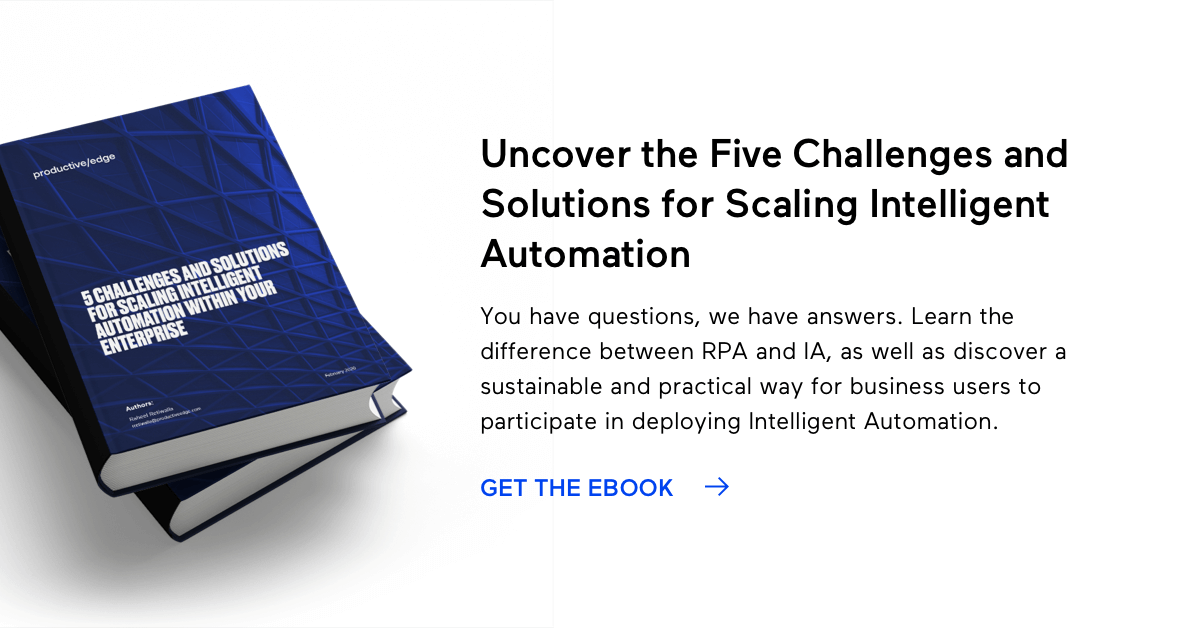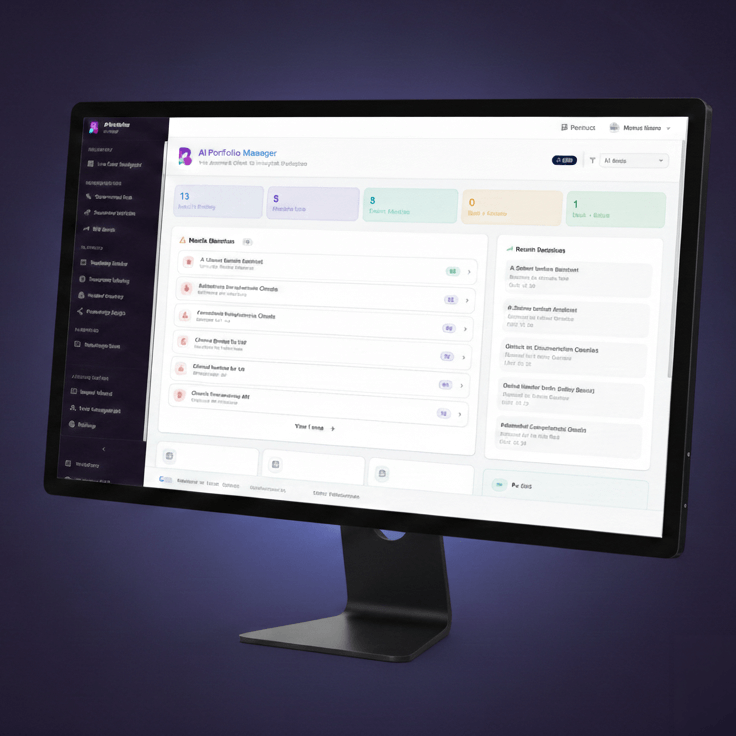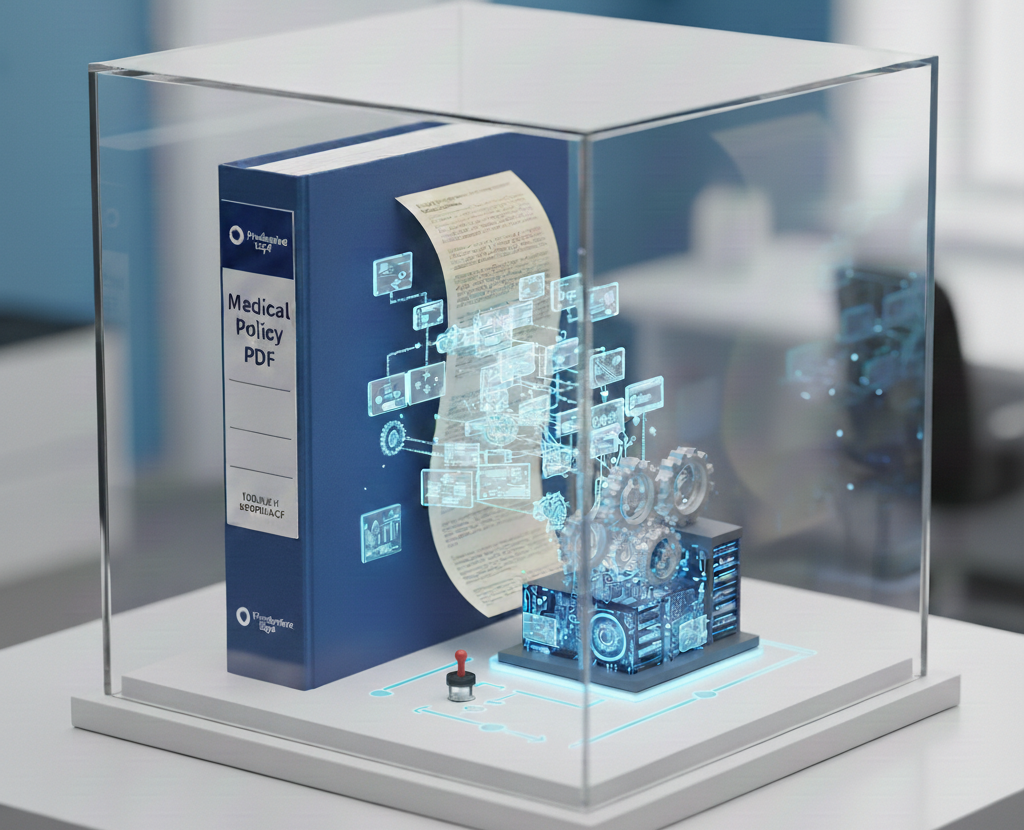What is Robotic Process Automation? What You Need to Know
Automation is a key focus for many enterprises. But it’s historically been focused on automating labor-intensive work in manufacturing or supply chain. However, it’s now possible to automate “knowledge work” (white-collar jobs) through automation. The cost savings associated with automating the numerous manual tasks knowledge workers perform are too great to be passed up. Because of this, Robotic Process Automation (RPA) has become a popular way of automating knowledge work.
RPA in healthcare is used to automate processes like filing forms, supporting customers, performing complex calculations, processing and triaging documents and attachments, repetitive data entry, sending email reminders, and more. For example, hospitals can use RPA to automate basic tasks so their staff can spend more time on patient care.
RPA in finance and banking is similar, automating document processing and validating applications. For example, banks can use RPA to decrease how long it takes to originate and approve loans.
Benefits of RPA
By using RPA, organizations have been able to minimize their costs, improve productivity, and maximize profits. How has RPA made it possible? Let’s explore how RPA benefits enterprises.
Streamlined Business Processes
Time plays a crucial part in organizations today. Modern enterprises want to complete tasks as quickly as possible. With that said, it’s also vital to process organizational tasks accurately. RPA can help in streamlining business processes by automating repetitive tasks in an organization with minimal error.
RPA bots never get tired. On top of that, bots can continue to learn, which further refines their operation in the future. RPA in HR also has many use cases. One of the processes that RPA bot can handle effectively is an HR task of processing sick leave for dozens of employees at a time.
Enhanced Data Security
RPA bots can drastically enhance data security. Unlike human beings, RPA bots don’t read through sensitive data and attempt to use it for their own gain. You can train RPA bots to consider General Data Protection Regulations (GDPR) to ensure your organization is handling data with care. It also does not allow unwanted access to the system, which safeguards the data. You can use role-based access to determine the data access for each individual in your company.
Cost Savings
Many organizations have been able to use RPA for reducing costs. The data shows that the implementation of RPA can reduce processing costs by as high as 80%. It’s a huge number for enterprises. It minimizes the errors and can decrease the accumulative expense by up to 20% in a single operation.
Compliance
RPA bots are very good at following compliance regulations. They can reliably track the processes and consider the standards, which drastically reduce errors. Moreover, it also monitors procedures, which further minimizes the possibility of mistakes.
Digital Transformation
Digital Transformation is the focus of many modern organizations. Despite digital transformation being a focus area, there’s a high chance of failure for transformation projects. RPA removes the load of the back-office tasks, and it also provides many critical insights to organizations to understand their process flow. RPA can assist organizations in creating better digital strategies for a successful digital transformation.
Employee Productivity and Morale
There’s no fun in doing mundane tasks all the time. It adds nothing to employees’ creativity, but we can’t ignore these tasks because they’re vital. Thanks to RPA, we can allocate these tasks to RPA bots. RPA bots can carry out repetitive tasks, while employees can focus on other tasks that not only offer more satisfying challenges to them but also are more valuable to the organization. While many people worry that RPA will lead to mass layoffs, that doesn’t actually happen. Enterprises instead choose to have employees focus on other strategic projects.
RPA Use Cases
RPA bots have managed to serve various areas of businesses due to their power and intelligence. The great thing about RPA is that it does not cost a lot of money for organizations to implement it. Without further ado, let’s check out some of the low cost use cases of RPA.
Finance and Accounting
One study shows that RPA can handle up to 44% of finance and accounting tasks by minimizing manual labor. Companies can use RPA to process a large volume of invoices, handle refunds quickly, deal with account receivables, and other jobs related to finance and accounting. Traditional reports such as revenue comparisons between quarters can be automated, and this allows finance to turn into a department that provides insights, rather than just data.
Human Resources
There are plenty of tasks that RPA can automate in the Human Resources department. RPA bots can deal with managing attendance, processing payroll, ruling out unqualified candidates in the recruitment process, and more. The automation allows HR employees to focus on things that can provide more value to an organization.
IT Management
It’s possible to manage IT processes with RPA. Some of the examples of tasks that RPA can handle are automating software audits, optimizing email notifications, managing and controlling source-code, managing passwords and resetting, and more.
Customer Service
As per the research, an organization can automate around 70-80% of rules-based processes. Most of the customers will ask similar questions, and an RPA bot can deal with them by providing an automated, ready-made answer. Around 66% of Americans want companies to value their time. By adding an RPA bot, you can make customers happy and retain them.
Another great feature of an RPA bot is that it can answer queries and segregate triage to a particular department like Sales, Tech, HR, and so on if it cannot solve the question itself. It will ensure that customers would not be frustrated with irrelevant answers.
Data Extraction
The businesses that utilize data property are the ones who prosper. Today, we cannot expect the data to be only in a plain text format. It can come in different forms like text, images, sound clips, etc. The data entry professionals have a difficult time understanding and entering useful data into the system.
Optical Character Recognition (OCR) technology can quickly process various kinds of data into the system. By implementing an RPA bot, you can automate the collection and storage of data of different formats with little to no compromise in the accuracy of the data.
RPA Vendors
As more enterprises consider implementing RPA, a few leading vendors have the tools necessary to provide a starting point for RPA implementation. These RPA vendors have technology that’s been proven to help improve operations that reduce overall costs.
- UiPath develops a platform for healthcare RPA and other industries.
- Automation Anywhere is another leading provider of healthcare RPA bots.
- WorkFusion’s AI-driven automation and RPA software offer Intelligent Automation at scale for healthcare providers.
Conclusion
With RPA, enterprises can see increased automation combined with more efficient processes, which will make the day-to-day easier for staff as they’ll spend less time on tedious manual work and more time on strategic projects.
Productive Edge is a leading digital transformation consultancy specializing in helping enterprises implement RPA. We partner with our clients to enable technology-powered RPA experiences that reimagine and transform the way people live and work.
By teaming up with other leaders in this field such as Workfusion, UiPath, and Automation Anywhere, we provide our clients with instant results, using tactics like data alignment, problem framing, road mapping, and piloting new RPA bots. To learn more about how the technology consultants at Productive Edge can help your business implement RPA, contact us to book a consultation.





